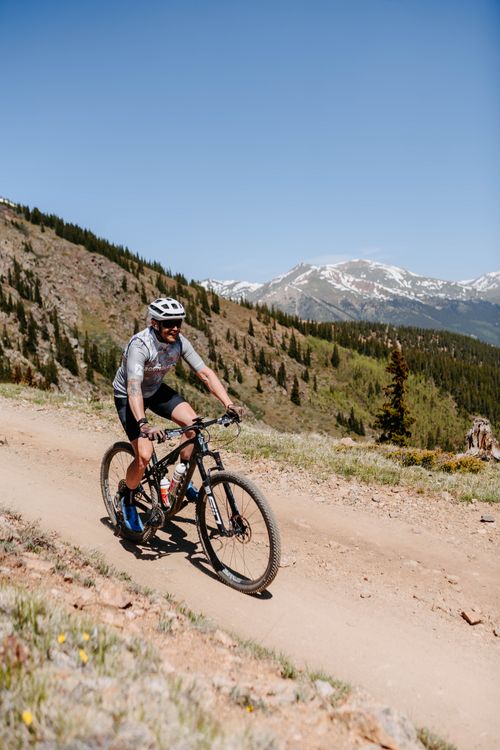Lessons to help you go farther, faster - and stay in the game longer
1. Recovery is Just as Important as Training
Here’s the equation I wish someone had tattooed on my forehead 15 years ago:
Stress + Rest = Growth
It’s simple, yet most of us ignore the second half. We get obsessed with the stress side (hammering workouts, racking up miles, chasing fatigue) - thinking that’s the key to getting better. But stress alone just breaks you down. Recovery is what builds you back up stronger.
Sleep, food, breathers, and true rest days aren’t optional - they’re essential. Recovery isn’t what you do when you’re too tired to train. Recovery is training.
Takeaway: If you want to go hard, you have to respect the rest. Otherwise, you’re just piling stress on a body that can’t adapt.
2. Take Your Easy Days Easy
When I first moved to Flagstaff, I thought I had to prove myself every day. Then I started doing easy runs and long efforts with some of the best runners in the world - athletes training for World Championships and Olympic team spots. And you know what shocked me?
They were jogging. Like 10-minute pace jogging...
At first I thought, “There’s no way this is how you get fast.” But over time, I saw the magic. These athletes weren’t going easy because they were lazy - they were going easy so they could go hard when it mattered. That’s when it clicked: You can't train hard if you never truly go easy.
Takeaway: Trust the process. Save your fire for the workouts that matter. Don’t turn recovery workouts into race efforts.
3. Consistency Beats Hero Workouts
Big breakthroughs don’t come from one massive training session. Breakthroughs come from consistent, deliberate work - day in, day out.
Think of training like investing. Most of us don’t retire off one big paycheck. You build wealth through regular deposits and compounding interest. Training is no different. A little bit of consistent effort pays far more than one big effort followed by a crash.
I used to try to make up for missed training with big, epic workouts. That just led to fatigue, burnout, or injury. Now, I play the long game.
Takeaway: The athlete who shows up consistently (even when it's not perfect) wins. Forget the boom-bust cycle. Compound interest is where it's at.
4. Don’t Let Perfect Be the Enemy of Good
This applies at both the macro and micro level.
Macro: Does it really matter that you missed one or two workouts in a 3-month block? Nope.
Micro: Will 10 extra seconds of rest between intervals derail your training plan? Absolutely not.
It’s easy to get hung up on chasing the "perfect" plan, perfectly executed. But chasing perfection often leads to inconsistency, frustration, and in some cases, paralysis.
Takeaway: Training flexibility is a skill. Perfection is a myth. Get good at adapting, and give yourself grace when things don't go exactly to plan.
5. Life Will Get in the Way - And That’s OK
Most of us are professionals who are athletes. Not professional athletes. That’s a big difference.
You’re going to miss workouts because of work, family, illness, stress, snowstorms, flat tires, or kids waking you up all night. You’ll have to train at odd hours, skip the “optimal window,” or just get in what you can between meetings. And that’s fine.
What matters is that you keep nudging forward. Success isn’t about perfect circumstances. It’s about adaptability and a mindset that says, “I’m still showing up, even if today looks different than I planned.”
Takeaway: You don’t need perfect conditions to grow. You just need to keep showing up and doing what you can. Progress comes from persistence, not perfection.
6. The Best Time to Start Strength, Mobility, and Rehab Was Yesterday
Let me be blunt: if you're not doing some form of strength, mobility, or rehab work, you're playing a risky game.
This isn't just about injury prevention - it's about performance, longevity, and durability. These are the bricks that build a strong foundation. They’re what keep you out on the trail, in the saddle, or climbing hard year after year.
Don’t wait until something hurts. Don’t wait until you’re sidelined. Play offense now.
Takeaway: Start today. Your future self = still training, still racing, still doing the things you love at 50, 60, 70+... will thank you.
Closing Thoughts:
These lessons didn’t just come from my own trial and error - though there’s been plenty of that. They’ve also come from the privilege of learning from great mentors, coaching athletes across all levels, and staying curious as both a student and a practitioner of this craft.
Training hard and chasing big goals is a beautiful pursuit, but it’s even better when it’s sustainable. These strategies aren’t just about avoiding mistakes; they’re about setting yourself up to thrive now and in the long run.
So if you’re early in your journey, consider this your shortcut. And if you’ve been at it a while, maybe it’s your reminder to zoom out, recalibrate, and keep stacking the habits that help you do this for life.
Let’s keep pushing forward - but let’s do it smarter.
.......
Coach AJ is not only a Boundless Coach, but also an elite athlete who earned his Doctor of Physical Therapy. His mission is to share what he’s learned, support athletes in navigating their own journey, and guide them toward success—however they define it. Check out his bio to learn more and to start training!

